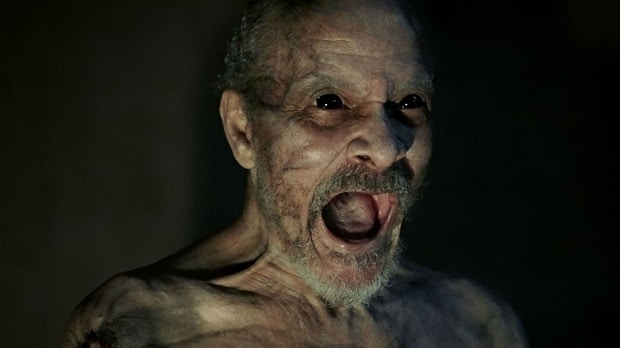I’m as guilty as anyone for bemoaning the ‘same-old shit’ of certain subgenres of horror films. In fact, I’m fairly sure I’ve bemoaned such a thing on this very website (or at least in its previous, Brutal as Hell, guise). I’ve come to realise, however, that if there’s one thing more tiresome than yet another babe lost in the woods or frat boy tied to a chair, it’s the dismissal of the horror genre by people who seemingly know nothing about it except for examples they themselves deem to be exceptional. Many a term has been used, from well-established notions such as terror, or the Gothic, through to made-up crap like Deathwave – yeah, remember that?
Today, The Guardian critic Steve Rose has thrown another contender into the ring, suggesting that, in the wake of films such as It Comes At Night and A Ghost Story, “what could be emerging here is a new sub-genre. Let’s call it ‘post-horror’.”
You know what, Steve? Let’s not.
In what amounts to an astounding misunderstanding of how genre works at all and complete unfamiliarity with horror either in its present form or in a historical context, Rose’s article offers several examples of films which present us with explorations of internal fears, and filmmakers who are daring to break with supposed convention. According to Rose, “more than any other genre, horror movies are governed by rules and codes,” and by breaking these rules filmmakers such as Trey Edward Shults and Robert Eggers are ushering us into the giddy heights of post-horror. Sadly, Rose ain’t Foucault, and post-horror is nothing but the latest in a long-standing tradition of lazy critical snobbery.
Rose asks, “what happens when you stray beyond those cast-iron conventions [of the genre] and wander off into the darkness?” Answer: you get more horror films. The whole purpose of genre is to offer rules and tropes that both define and redefine it. No genre is a fixed, unchanging entity. Disregarding the myriad inaccuracies and convenient fallacies in Rose’s arguments, there is a central driving force to the article that’s found in its conclusion: the claim that horror is “too rigid” to offer new answers to “big, metaphysical questions.”
So, a genre that has given us Dr. Caligari, Frankenstein, Carmilla, Norman Bates, Michael Myers, The Three Mothers, Candyman, Sadako, Captain Spaulding and, yes, Black Phillip is too rigid? A genre that has offered us interpretations of and commentaries on fascism, oppression, capitalism and identity is too rigid? The genre that has offered us personal accounts and insights into grief, mental illness, parenthood and the meaning of life itself is too rigid?
The only thing that is too rigid about horror is the persistent and false belief from some that it is not good enough and not profound enough; and, somehow, not broad enough to encompass all that it does.
